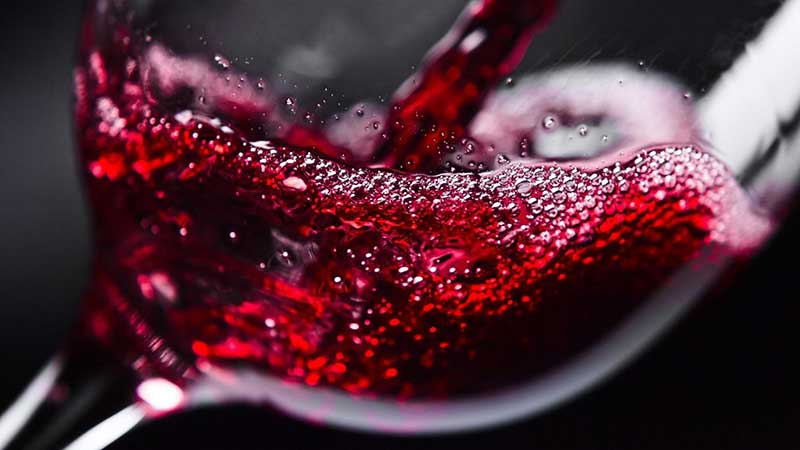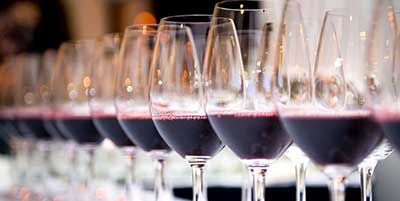
Red wine has long been a popular beverage among adults, especially those who enjoy a glass with dinner or while socializing with friends. One of the compounds found in red wine that has gained attention in recent years is resveratrol, a type of polyphenol. While some studies suggest that resveratrol may provide health benefits, others warn about potential risks. In this article, iqnect explore the topic of resveratrol in red wine, including its health benefits and risks.
Introduction
Red wine is a popular alcoholic beverage made from grapes. It has been enjoyed for centuries, not only for its taste but also for its potential health benefits. One of the compounds found in red wine that has gained attention in recent years is resveratrol. While some studies suggest that resveratrol may provide health benefits, others warn about potential risks. In this article, we’ll explore both the benefits and risks associated with resveratrol in red wine.
What is Resveratrol?
Resveratrol is a type of polyphenol that is found in various plant sources, including grapes, peanuts, and berries. In red wine, resveratrol is found in the skins of
Health Benefits of Resveratrol

Resveratrol has been found to provide a number of potential health benefits. Some of the most significant benefits are listed below:
1.Antioxidant Properties
Resveratrol is a powerful antioxidant, which means it can protect cells from damage caused by free radicals. Free radicals are unstable molecules that can cause oxidative stress and lead to various diseases, including cancer, heart disease, and Alzheimer‘s disease.
2.Anti-Inflammatory Properties
Resveratrol has also been found to have anti-inflammatory properties, which means it can reduce inflammation throughout the body. Chronic inflammation is linked to many diseases, including heart disease, diabetes, and cancer.
3.Heart Health Benefits
Studies have suggested that resveratrol may provide heart health benefits, such as reducing blood pressure and improving cholesterol levels. Additionally, resveratrol may help reduce the risk of blood clots, which can lead to heart attacks and strokes.
4.Anti-Cancer Properties
Resveratrol has been found to have anti-cancer properties, which means it may help prevent cancer cells from growing and spreading. It has been shown to be particularly effective against breast, prostate, and colon cancers.
5.Anti-Aging Properties
Resveratrol has also been found to have anti-aging properties, which means it may help prevent age-related diseases and slow down the aging process. It has been shown to increase lifespan in animal studies.
Risks Associated with Resveratrol
While resveratrol may provide health benefits, there are also potential risks associated with its use. Some of the most significant risks are listed below:
1.Negative Interactions with Medications
Resveratrol may interact negatively with certain medications, including blood thinners and nonsteroidal anti-inflammatory drugs (NSAIDs). If you are taking any medications, it is important to talk to your doctor before taking resveratrol supplements.
2.Negative Effects on Fertility
Studies have suggested that high doses of resveratrol may have negative effects on fertility in both men and women. If you are trying to conceive, it is important to talk to your doctor before taking resveratrol supplements.
3.Negative Effects on Pregnancy and Breastfeeding
Resveratrol supplements have not been studied extensively in pregnant or breastfeeding women, so it is not clear whether they are safe during these times. If you are pregnant or breastfeeding, it is best to avoid taking resveratrol supplements.
Recommended Intake of Resveratrol

The recommended intake of resveratrol varies depending on the source. If you are obtaining resveratrol from dietary sources, such as red wine, it is recommended to consume in moderation, typically one glass a day for women and up to two glasses a day for men. If you are taking resveratrol supplements, it is important to follow the manufacturer’s recommended dosage.
Conclusion
Resveratrol is a compound found in red wine that has gained attention for its potential health benefits. While some studies suggest that resveratrol may provide antioxidant, anti-inflammatory, heart health, anti-cancer, and anti-aging properties, there are also potential risks associated with its use, such as negative interactions with medications and negative effects on fertility, pregnancy, and breastfeeding. It is important to talk to your doctor before taking resveratrol supplements and to consume red wine in moderation.
FAQs
Can I get enough resveratrol from food alone?
While red wine is a primary source of resveratrol, it is also found in other foods such as grapes, peanuts, and berries. However, it may be difficult to consume enough of these foods to obtain the same amount of resveratrol found in supplements.
Are there any side effects of taking resveratrol supplements?
In general, resveratrol supplements are considered safe when taken in recommended doses. However, some people may experience side effects such as digestive issues, headaches, and dizziness.
Can resveratrol supplements prevent cancer?
While some studies have suggested that resveratrol may have anti-cancer properties, more research is needed to fully understand its effects on cancer prevention and treatment.
Is it safe to drink red wine every day?
While red wine in moderation may provide health benefits, drinking too much can increase the risk of liver disease, high blood pressure, and other health issues. It is recommended to consume red wine in moderation, typically one glass a day for women and up to two glasses a day for men.
Are there any other health benefits of red wine besides resveratrol?
Red wine contains other compounds that may provide health benefits, such as polyphenols and flavonoids. However, it is important to consume red wine in moderation and as part of a balanced diet.
